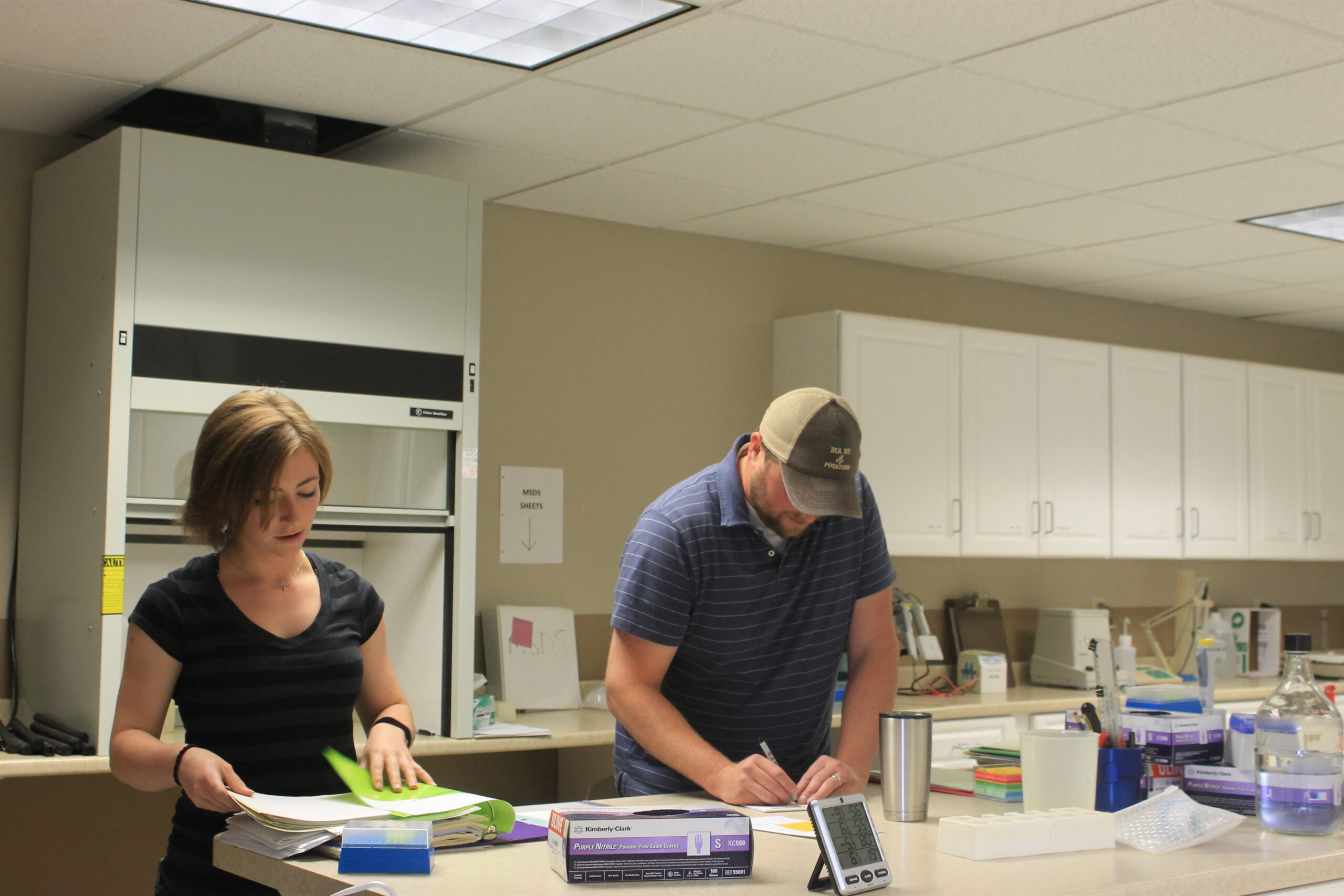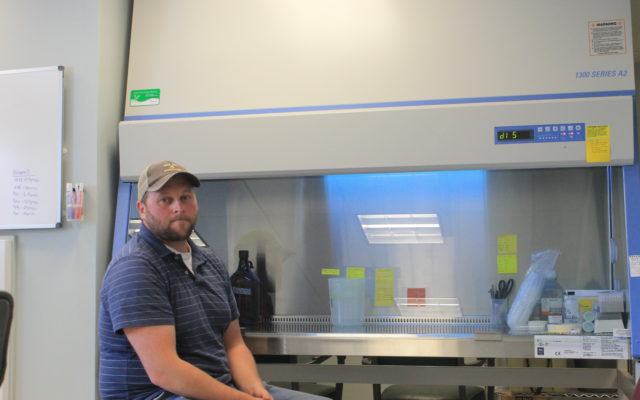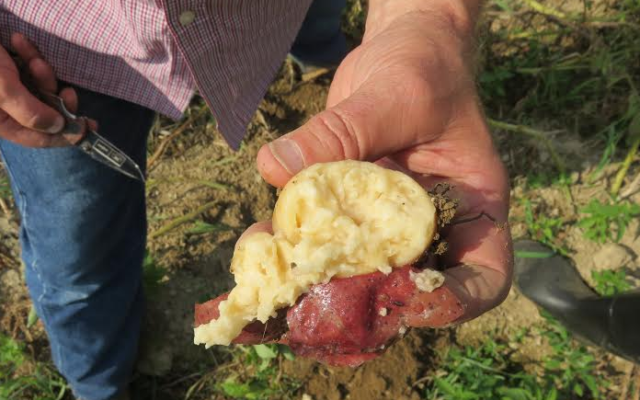
A newly renovated laboratory in Presque Isle is getting a break this summer after a busy winter screening potatoes for the DNA of several troublesome diseases.
Last fall and winter, some 200,000 dormant potato tubers were screened for key bacterial and viral infections at the Maine Potato Testing Lab, said Andrew Plant, pathologist and lab manager with the Maine Potato Board.
The lab is staffed by the Potato Board and owned by the Maine Department of Agriculture, Conservation and Forestry, and Plant said it’s set to help the Maine seed potato industry respond to disease issues with more precise, DNA-based technology.
“It’s kind of like CSI forensics,” Plant said, describing the process of screening dormant potatoes for the DNA of multiple diseases. In one test, for instance, a core from a seed potato is kept in a broth over 48 hours, spun into a liquid and analyzed through a DNA extractor.
Over the last year the lab has largely focused on testing for bacteria associated with the rotting disease blackleg, an old problem that’s made a return through a bacteria known as dickeya. Common in northern Europe, dickeya is a new cause of blackleg in North America, and it can be hard to find — staying on otherwise healthy looking seed potatoes and later ruining a harvest.
The new trouble with blackleg has threatened business for seed potatoes, an important niche market that represents about 22 percent of the 46,000 acres of potatoes harvested last year.
The emergence of the disease has in turn put pressure on the state certification program for seed potatoes, which are inspected for a spectrum of health issues before being allowed for sale out of state.
- Andrew Plant, lab manager at the Maine Potato Testing Lab, has been helping expand the lab’s reach following a renovation and addition of new genetic testing equipment. (Anthony Brino)
Trying to address the issue and reassure buyers of Maine seed potatoes, the Maine Potato Board has invested $181,000 from the Potato Marketing Improvement Fund to make capital improvements to the lab, including expanded space, new DNA testing equipment and containment freezers for live samples of pathogens.
Plant estimates that more than half of the region’s seed potato farmers had dormant tests for blackleg-associated bacterias over the last year. Those tests and their results are anonymous.
Along with helping seed potato growers identify blackleg causes, the lab will be a key part of changes to the department of agriculture’s seed potato health certification.
The certification process is transitioning to all lab tests and will discontinue the traditional “Florida grow out” where samples of Maine seed potatoes are grown in Florida during the winter to look for evidence of various diseases in a warmer climate.
- A potato in August 2015 that is infected with Dickeya dianthicola, a bacteria that causes the rotting disease blackleg. (Steven Johnson)
This will help add certainty to the certification when it comes to diseases like blackleg and potato virus Y, Plant said.
Potato virus Y is a particularly challenging and evolving virus that can be transmitted in seconds by aphids. “The virus has morphed and become recombinant,” with four different strains that often don’t appear on the plants visually, Plant said.
“It’s really hard to see PVY in foliage now. The biology has shifted,” said Plant, who joined the potato board in January after 15 years with the University of Maine Cooperative Extension.
When the seed potato certification fully transitions to laboratory testing, Plant estimates that it will double the amount of testing work being done at the lab.
Currently, Plant and another full-time lab technician work year round, while three full-time lab technicians are hired on a temporary basis from fall through early winter, Plant said. There also are plans to begin tests for more diseases, including powdery scab.
“It’ll be a big leap, but pretty worthwhile for the industry to get on top of some of these problems,” Plant said.









